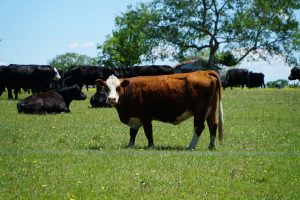Last chance to tell USDA to decentralize our food system
Published June 21, 2021
The USDA is seeking public comments on agricultural and food supply chains. We sent out an alert a few weeks ago and wanted to remind you because the comment period ends tonight at midnight!
USDA plans to use the public comments it receives to help prepare a report to President Biden on what needs to be changed to improve our country’s resilience. The agency will also consider the comments in its spending of stimulus funds so as to increase durability and resilience within the U.S. food supply.
 This is an important opportunity to talk about the significance of localized, decentralized food systems – and to give the agency specific action steps that would help move us to those systems!
This is an important opportunity to talk about the significance of localized, decentralized food systems – and to give the agency specific action steps that would help move us to those systems!
You can submit your own comments with: (1) specific examples of the challenges farmers and other food producers face in raising, processing, and marketing their products; and (2) action items that would help small-scale and diversified producers in order to build resilient, diversified systems.
If you don’t have time to write your own comments, you can still help by adding your voice to FARFA’s! We have submitted comments that recommend:
1. The agency should change multiple meat processing regulations and policies:
- Allow farmers and consumers to divide the meat from an “animal share” themselves, rather than requiring custom slaughterhouses to do the division; this would make animal share arrangements much more flexible and feasible.
- Amend the regulations and policies that are scale-prejudicial, including making pathogen testing requirements proportional based on the volume of meat produced; providing model HACCPS, recognizing verification methods other than pathogen testing, and providing specific training and accommodations for inspectors at small-scale plants.
- Allow states more flexibility to find food safety solutions.
- Stop allowing the big meatpackers to operate at unsafe speeds.
2. The agency should consistently consider impacts on small businesses, and the overall impact on competition and consolidation, in all agency actions.
3. The agency should abandon plans to mandate electronic animal ID.
4. The agency should support healthy animal management through pasture-based operations, rather than large confinement operations.
And more – you can read our comments here:
Submit your comment online at https://www.regulations.gov/commenton/AMS-TM-21-0034-0076 before 11:59 pm Eastern time tonight, Monday, June 21!
As we state in the conclusion to our comments:
FARFA applauds the USDA’s inquiry into what is needed to improve the resilience of our agricultural and food system. But actually improving resiliency will require a significant change in the mindset of the entire agency. Decades ago, well-meaning individuals theorized that the future of our country lay in having as few farmers as possible, leading to Secretary Butz’s famous “get big or get out” announcement. Every Administration since then has subscribed to that theory. In the 1980s, when farmers were going out of business in record numbers due to some of the resulting policies, a new generation theorized that the answer lay in the export markets – that we could escape biological, ecological, and economic realities by exporting cheap goods around the globe. These policies were friendly to the growth of massive corporations, who reaped immense profits selling expensive inputs or patented seeds, or by creating highly palatable processed foods. As these companies grew, they gained greater political as well as economic power, leading to even more policies and regulations that favored their growth.
Many of the costs of these policies have been evident for some time: the economic and social destruction of rural communities, the loss of vital topsoil, the mining of aquifers, significant water pollution, and the epidemic of chronic illness in our country. Many organizations have worked to change USDA policies to address these problems, but with extremely limited success. The agency continued its fundamental “get big or get out” approach, softened only by a few grant programs or niche marketing opportunities.
And now the COVID-19 pandemic has laid bare, for the world to see, one of the costs of this system: the fragility of our food supply and the inability of the current system to cope with a crisis. Had the government not bailed out the meatpacking industry by providing liability protection against workers’ claims for unsafe working conditions, the shortages and related problems would have been even more serious. The current system’s “resiliency” comes solely from its ability to get government bailouts on the basis of it being “too big to fail.”
We know more crises will come. We face a choice: build a more resilient system, or continue down the path we have been on and continue to bail out these huge corporations, not only wasting tax dollars, but sacrificing our health, our environment, and our long-term ability to produce food in this country.
The recommendations in these comments are just part of what needs to happen. FARFA stands ready to work with the agency to help move our agricultural and food system to a truly resilient one, for the benefit of all Americans, current and the generations to come.
We wish to add our THANKS TO YOU – for the actions you take every day to help build a more resilient agricultural and food system.
